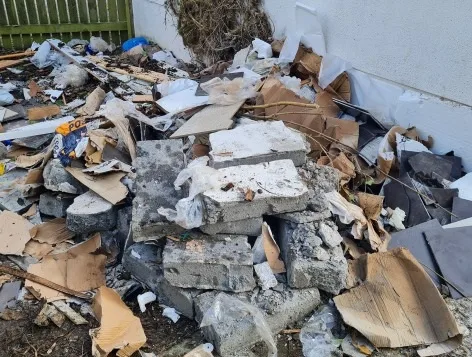Your role in the building industry is more than simply constructing structures and earning profits. It encompasses a larger responsibility towards the environment and it also involves employing efficient waste disposal methods.
While there is undoubtedly an increasingly urgent need to incorporate effective and environmentally-friendly rubbish removal techniques into everyday operations, understanding that it forms an integral part of sustainable building practice truly changes the perspective.
Understanding Building Industry Waste
In any building operation, waste production is inevitable. The offcuts, packaging materials, and unwanted substances can pile up rapidly. However, a vital part of improving your waste management process lies in understanding the nature and composition of this rubbish.
A broad category would include masonry debris, wood scrap, metal pieces, discarded plastics, mixed rubble etc. Acknowledging this waste and finding ways to effectively manage it will not only lead to a tidier work site but also contributes to a more eco-friendly operation.
Types of Rubbish in Construction
Knowing different types of rubbish produced during construction allows you to sort and dispose of them systematically. Not all building scraps are the same; they differ in type, origin, potential recyclability, disposal methods and their potential threat to environmental health if not discarded appropriately.
Impact of Efficient Rubbish Removal
Effectively getting rid of waste from your construction site has far-reaching benefits beyond just cleanliness. It induces enhanced productivity as employees operate better in organized environments.
Secondly, it significantly reduces your carbon footprint which positively impacts ecological health. Another aspect often overlooked is the public image; when clients see that their projects are being handled with meticulousness and attention to environmentally friendly practices, it strengthens your business reputation.
Current Problems and Challenges
The challenges within the industry can’t be brushed under the carpet. Often construction activities fail to integrate an inexpensive garbage clearing solution into their operations due to perceived cost implications or lack of robust infrastructure for such systems. Also, lack of awareness about efficient methods combined with common misconceptions create roadblocks towards adopting proper waste disposal practices.
Methodologies for Efficient Removal
Embrace methodologies that optimize rubbish removal processes without overly straining financial resources or operational functionality. This includes implementing sorting practices at source which facilitates recycling or appropriate disposals later on – this is particularly helpful for large-scale projects with diverse types of waste generation.
Innovations in Rubbish Removal
Technological innovation is bringing about game-changing solutions for handling waste in the construction industry. From advanced recycling machinery that sort and recycle materials on site reducing transportation costs or smart bins that signal when they are nearing full capacity advocating timely collection mitigating overflow issues on sites – these present breakthrough opportunities for efficient rubbish disposal.
Case Studies of Successful Management
Industry case studies provide valuable insights into how waste management can be executed optimally onsite. They serve as practical examples for how integrating advanced technologies with traditional methods led to improved productivity without compromising environmental responsibility.
Revolutionizing Waste Disposal
The future predictions around revolutionizing waste disposal are clear: businesses in the building industry must limit environmental impact while also maintaining economic sustainability and become a leading change-inducer in this drive by adopting forward-thinking waste management strategies as key components of your business model.
Embracing Sustainable Practices
As you shift your focus towards more sustainable practices, it’s essential to go beyond simply implementing an inexpensive garbage clearing solution. The foundation of any rubbish management approach should be based on the principle of sustainability and the lean construction philosophy – Reduce, Reuse, Recycle.
Reassessing Construction Materials
Long before a piece of rubbish finds its way into a waste bin, you are afforded the opportunity to reassess the materials you use. By opting for materials that are either recyclable or biodegradable, you take the first proactive step towards minimizing construction waste. This not only brings about immediate changes but also impacts future construction processes in a positive way.
Advocating Education and Awareness
Promoting environmental awareness among team members is another powerful tool for efficient rubbish removal. By staying informed about the latest efficient waste disposal methods available and understanding the ecological impact of irresponsible disposal, a collective mindset shift towards sustainability can be expected within the team. Thereby inculcating a culture where every worker is an advocate of efficient and responsible waste disposal.
Conclusion: The Future Scope
All signs point towards a future where stringent regulations will enforce sustainable practices universally across all aspects within the construction industry – including waste disposal.
By embracing new technologies now, shifting outdated practices towards smart methodologies, it becomes possible for you to proactively shape this inevitable future as opposed to reactively adjusting to it after its arrival.
Not only is this approach economically beneficial long term—it is essential for ensuring a sustainable environmental future.

